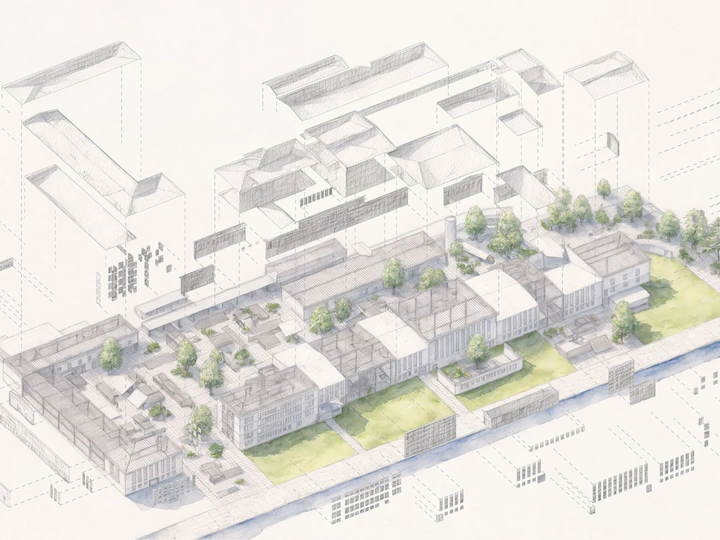Insanity Defense

Kasra Karami
RECAST is an architecture studio founded by Kasra Karami and Ivan Badiarov, based in Belval (LU). We focus on regenerative design and construction, employing modern tools such as life cycle assessment and digital architecture to analyze designs and optimize their carbon footprint and energy usage. Additionally, we collaborate with other architecture offices on their projects to implement innovative solutions in their design proposals. Our studio tries to integrate the concept of regenerative design into various stages of the design and construction process, from feasibility studies to design concept and development, as well as construction resources and methods.
We believe that partnering with other architecture offices or developers to address ecological aspects of design showcases the viability of such efforts to the market and promotes sustainable practices more effectively than only presenting the outcomes of green architecture. Therefore, our initial approach was to collaborate with startups and developers in Luxembourg's market. We are supporting the integration of CO2 regulations by contributing to the Décarbonation meetings of the National Council for Sustainable Construction in Luxembourg.
As a young architecture office, we are continuously acquiring experience along the way. Our goal is to grow our activities to other European countries, showing what we learned and putting them into practice.
The idea of the Insanity Defense is to create controlled vandalism for feralization in the man-made environment. This project pursues the question: how can we define a third space in the urban context for feralization? A space that, on the one hand, does not belong to the wild anymore, and on the other hand, is out of the valuation circle of the real estate market.
Feralization has already been addressed in other related projects. In "An Anticipatory Theory of Ruin Ecology," Jason Rhys Parry suggests that when designing and constructing buildings, architects should consider the wildlife that the building will shelter in its afterlife. The Krater project is another example of an attempt to transform a ruin site near the center of Ljubljana into a place with the potential for feralization.
Architecture for the third space means the approach of unbuilding to enable and fasten the process of feralization in the urban. Buildings that humans no longer live in, find the possibility of non-human residence by opening their impenetrable bodies. The ruins in this project are preserved instead of being renovated or wiped, to become dwellings for the local flora and fauna. This urban act grows the number of natural islands, which increases the ecological diversity of each of these sites while decreasing the extinction rate. The third space will eventually stabilize the new ecosystem within the human environment.
Initially framed in our thesis, Insanity Defense examines the urban development plan of Nordstad, Luxembourg. To illustrate the concept, we suggested the modification of a former factory at the heart of this urban project and allocated it to the local flora and fauna. For the next steps, we propose to present the process of unbuilding for non-humans as an architecture practice and utilizing the architecture tools of plans and models, to engage with as many stakeholders and the public as possible.